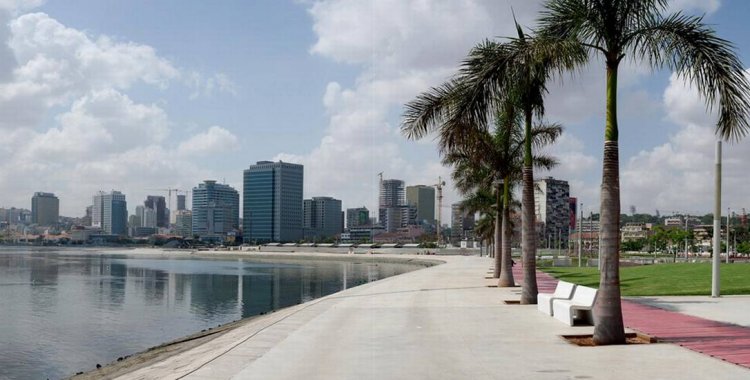In a report entitled "The Realignment of Angola's Foreign Policy," to which Lusa had access, the group of academics also anticipates that Angola will strengthen its relations with the United States of America, and considers that, as at other times in its history, "Portugal will always have a place apart.
The report comes at a time when the President of the Republic, João Lourenço, is in France to participate this Tuesday in the Summit for the Financing of African Economies, and on the sidelines of which he will meet with his French counterpart, Emmanuel Macron, and the Portuguese Prime Minister, António Costa.
The meeting with the French President, the document states, "represents one of the points of the ongoing realignment of Angola's foreign policy. And recalls that, "in the last days of [former Angolan president] José Eduardo dos Santos, the French were 'grounded' due to their role in 'Angolagate'.
On the other hand, he recalls that in early April, the Prime Minister of Spain, Pedro Sánchez, made a visit to Angola and that "it was accompanied by great Spanish commitment, affirming Angola as one of Spain's preferred partners in Africa.
Last year, German Chancellor Angela Merkel also visited the country, as part of an Angola-Germany Economic Forum, and advocated a 'Marshall Plan' for Africa. The Italian President had also visited Angola in 2019, the document also recalls.
As for Angola's former partners, Cedesa considers that both relations with Russia and China are in decline.
"For various reasons, at this time, Angola is rehearsing a different geopolitical approach, which tends to devalue the role of both Russia and China, and to find new references and political dialogues," that entity states in the document.
In the opinion of the group of academics, Angola's foreign policy today "bets on vectors linked to foreign investment and the fight against corruption.
And it is in this new context that "partnerships with Western Europe" are relevant, namely with Spain, France, Italy, Germany and the United Kingdom, "with the Persian Gulf," particularly with the United Arab Emirates and Dubai, and "with India," they conclude. At the same time, they anticipate a strengthening of relations with the United States.
When it comes to Portugal, the academics consider that "it is always a case apart, its influence comes less from the government and more from 'soft power,' from the umbilical bond that is maintained between the peoples of both countries.
"Portuguese businessmen always look at Angola as a possibility to expand their business." Thus, "the relations between Angola and Portugal have underlying an understanding between the peoples before the intervention of governments."
But on an official level, the Portuguese government is also "generally welcoming towards Angola," they argue.
In 2005, it welcomed Angolan investment wishes, currently it has acceded to Angola's requests for judicial cooperation in relation to the cases concerning the businesswoman and daughter of the former President of Angola, Isabel dos Santos, as before it ended up sending the case of former Angolan vice-president Manuel Vicente to that country, after great pressure from Luanda.
"Let's say that there is a manifest porosity of the Portuguese position, easily adapting to the positions and needs of Luanda," they say. This position, allied to the interest of Angolan elites in Portugal, "has ended up consolidating a good relationship between the two countries, despite one or another bump," conclude the academics.
The Angolan relationship with Russia and China, "coincided with the need to affirm its own sovereignty, independent of external interference, and also to obtain funds for the war and post-war reconstruction.
But the current foreign policy of João Lourenço "is placed on a slightly different level, in which it is important to gather external support for the two major reforms that are being carried out internally: economic reform and the fight against corruption," they explain.
Because these two reforms, they point out, "require external collaboration, without which they may not survive.
Angola's economic reform is based on the so-called Washington consensus, proposed by the International Monetary Fund (IMF).
Thus, it implies "the adoption of policies to increase taxes and restrict expenditure with the respective fiscal consolidation.
"Naturally, that this type of policies is recessive, it increases, in the short term, the economic crisis in Angola," they point out.
Therefore, the "great way to overcome this effect is to obtain foreign investment, and a lot of it."
"In short, foreign investment is the necessary counterweight to the IMF reforms and the key to their success. Consequently, it is not surprising that one of the main vectors of Angolan foreign policy is to approach countries with a remarkable and proven capacity for reproductive investment," argues Cedesa.
As for the fight against corruption, "the panorama is that, in general, countries with the potential to invest in Angola are the ones where judicial collaboration is required for the recovery of assets or trace of illegal financial movements," says the document.
This is because those who diverted "public funds" from Angola sent them "to the most advanced countries or those with greater financial potential.
At this time, "neither China nor Russia are countries where more investment is expected, nor were they the places chosen, apparently, to park illicit goods or assets.
"Or, if they were, there is no knowledge of what is going on there and is hosted there," they point out.







